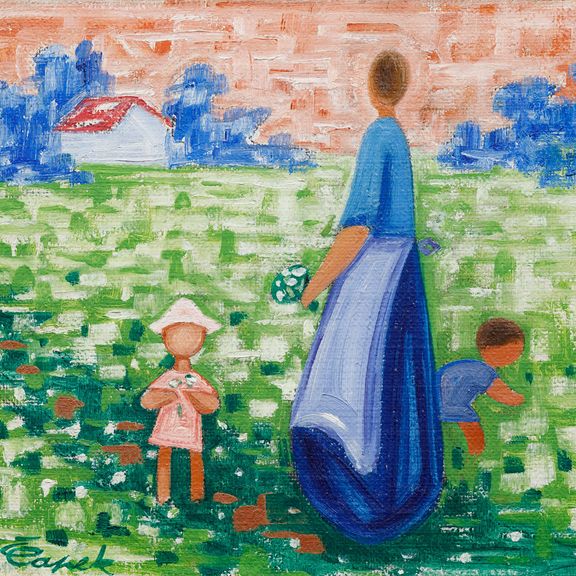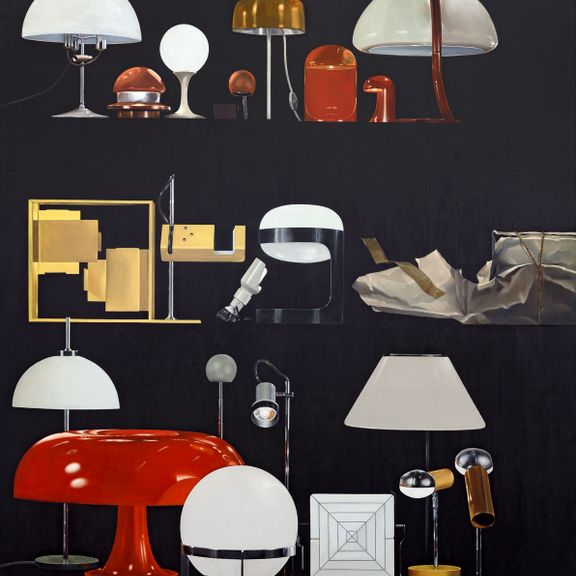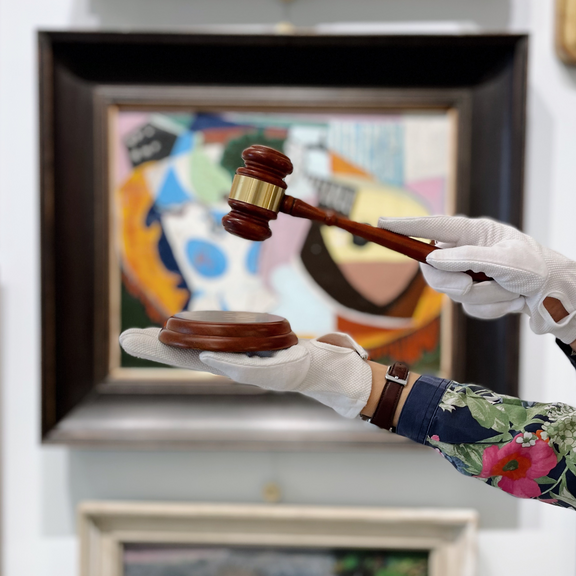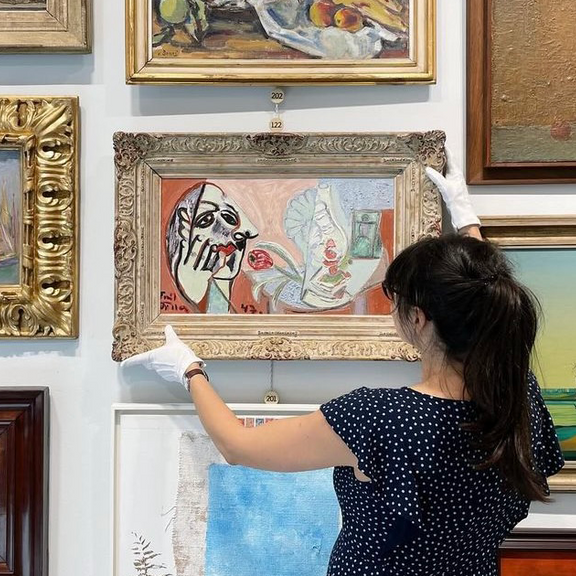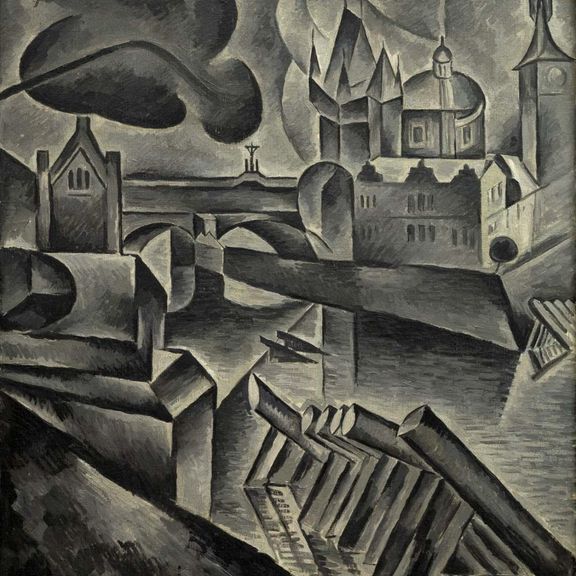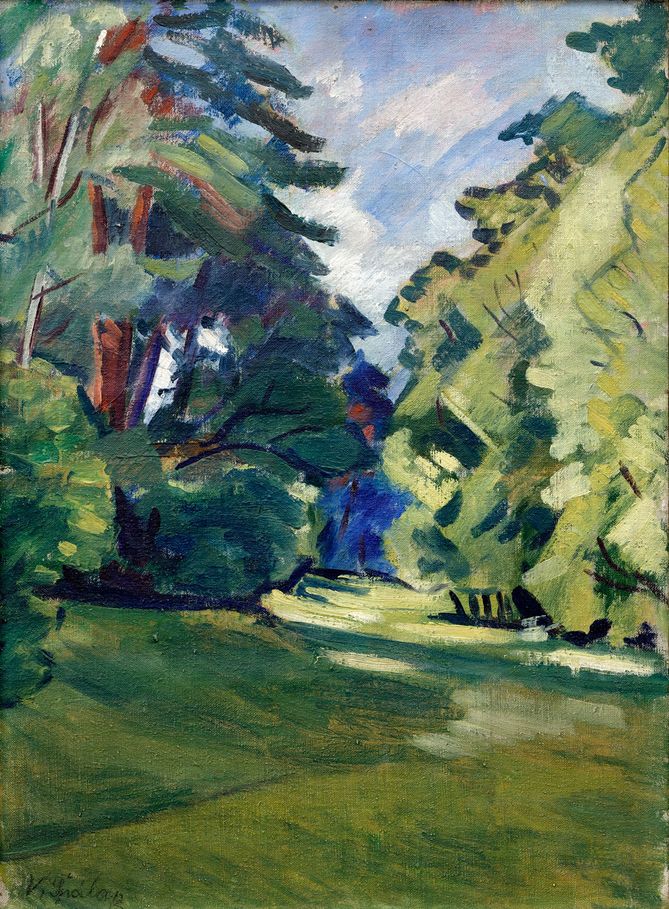
oil on canvas
1912
lower left
53.5 × 40 cm
frame
Starting price: 1,500,000 CZK Final price: 2,160,000 CZK
88th Auction, lot 117 The painting Trees comes from Špála’s radical period, when cubistic morphology began to be reflected in his characteristic expressionist style. Analytical cubism, as promoted by Emil Filla, was not interesting for the artist. Similar to his friend Josef Čapek, he sought in cubism a fundamental simplification of artistic expression and a painterly gesture capable of exposing the structure of an image solely by using colours. After all, this disagreement resulted in the progressive generation of artists being torn in two: the members of the Skupina výtvarných umělců group, who agreed with Filla’s orthodox orientation towards cubism inspired by Picasso and Braque, and those who believed that modern art could consist of a whole range of approaches. After all, Špála demonstrated this himself in his work; he was inspired not only by Parisian cubism, but also by fauvism and Nordic expressionism. In 1905, just like his companions from the class of Vlaho Bukovac and Franz Thiele at the Prague Academy, he was influenced by work of Edvard Munch exhibited in Prague with the support of The Mánes Association of Fine Artists. Perhaps he came closest to Munch’s symbolic expressionism in his painting Road on Lopud (also from 1912). The presented painting, rare on the art market, is one of the artist’s early progressive works. On the reverse, there is a sketch of a boy’s back, probably dating back to Špála’s student years. Assessed during consultations by prof. J. Zemina and PhDr. R. Michalová, Ph.D. From the attached expertise by PhDr. K. Srp, Ph.D.: „[…] Špála was an experienced landscape painter who was able to transform the visual experience very accurately and, in addition, to give it a touch of modern painting, showing it in such way that he preserved the traditional features of landscape painting, but connected them with more abstract morphology. What immediately appeals to the beholder is the way he worked with light. […]“
